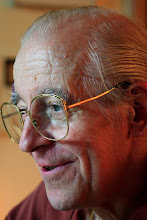 Some hwatu cards
Some hwatu cards Even though manufacturing decks of hwatu is not profitable, the company still produces them because it does not want to forget its roots. In 1899, Nintendo started as a manufacturer of hanafuda cards. The founder, Fusajiro Yamauchi (山内 房治郎, 1859-1940) used to be an artist himself and the cards also bore his paintings. In 1979, the company developed a portable game console. An employee travelling on a train saw another passenger killing time toying with an electronic calculator and came up with the idea of applying the concept of hwatu to an electronic game and so the famous Game Boys was born.
During the 1991 Gulf War, the Game Boys was so popular that it was regarded as a necessity for American soldiers dispatched to Kuwait. One day, a US military barracks was bombed and completely destroyed. In the ruins a soldier found a scorched and damaged Game Boys. Surprisingly, it worked. This was a direct result of the company’s research and development: Nintendo dropped a model Game Boys numerous times from the rooftop of the company headquarters to the ground, since after all, children carelessly drop their toys all the time.
In an emergency meeting aimed at reviving the economy, President Lee Myung-bak (李明博, 이명박, 1941- ) made a suggestion: “It would be good for us to develop game consoles like Nintendo’s.” This reminds me of former President Kim Young-sam’s (金泳三, 김영삼, 1927- ) remark that profits from the film Jurassic Park were nearly the same as those from exporting 1.5 million Hyundai cars. President Lee perhaps thought that as Korea is a leader in the IT field, Korean companies can easily catch up with Japan in the game industry if they want to.
Those in the IT field may say that Nintendo did not earn its reputation and fame with its flower cards. Yet today’s Nintendo game consoles could not have come to be without a company modest enough to continue manufacturing hanafuda for more than 100 years. Nintendo treasures its enthusiasm for new ideas, a corporate culture that respects creativity and its constant efforts to satisfy customers. Koreans are probably equal in one field: creativity. Koreans adapted and developed hwatu and from it created Go-Stop, one of Korea most popular games.
Giorgio Olivotto
Seoul, Korea
April 4, 2010
Seoul, Korea
April 4, 2010

Nessun commento:
Posta un commento